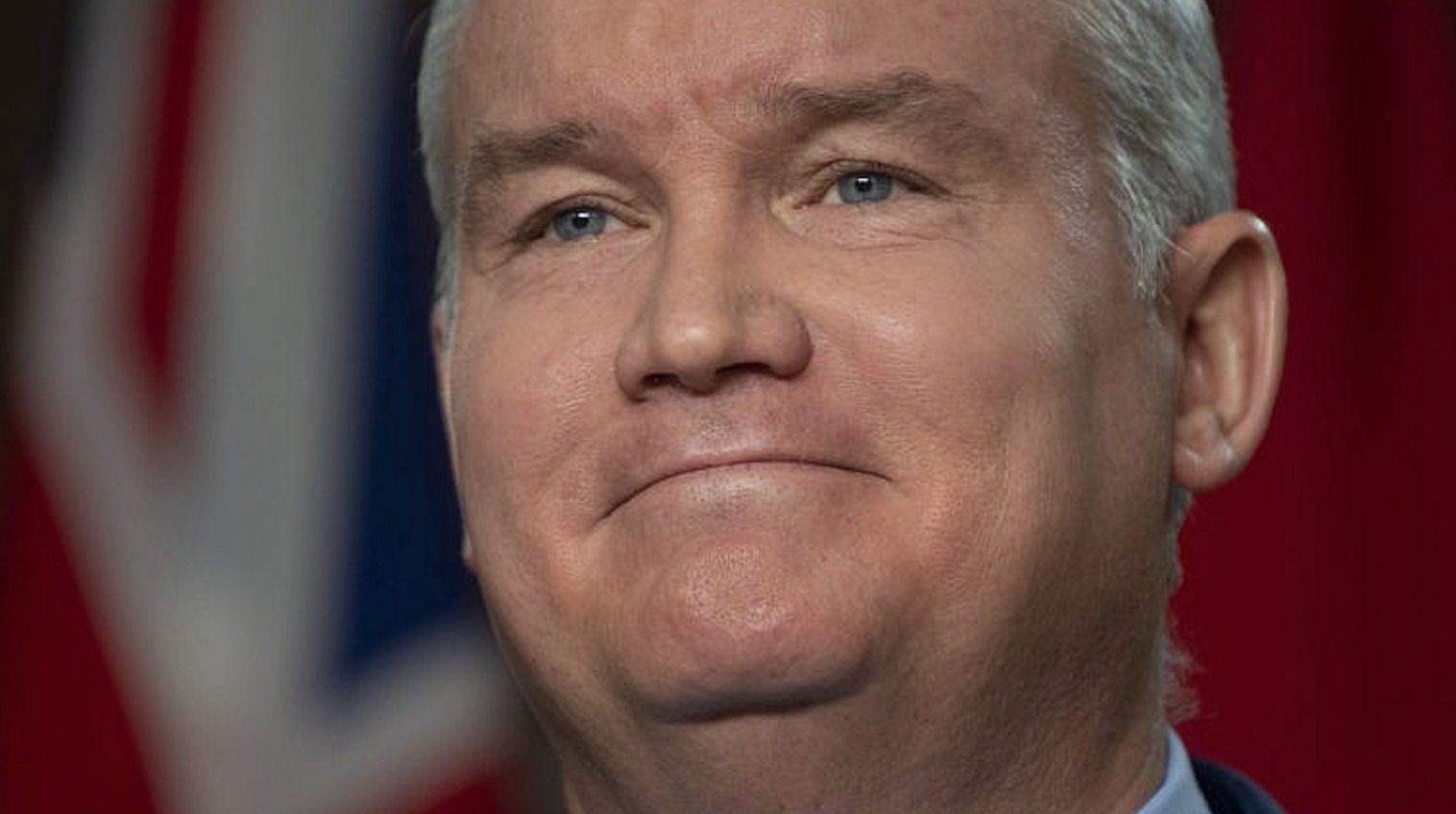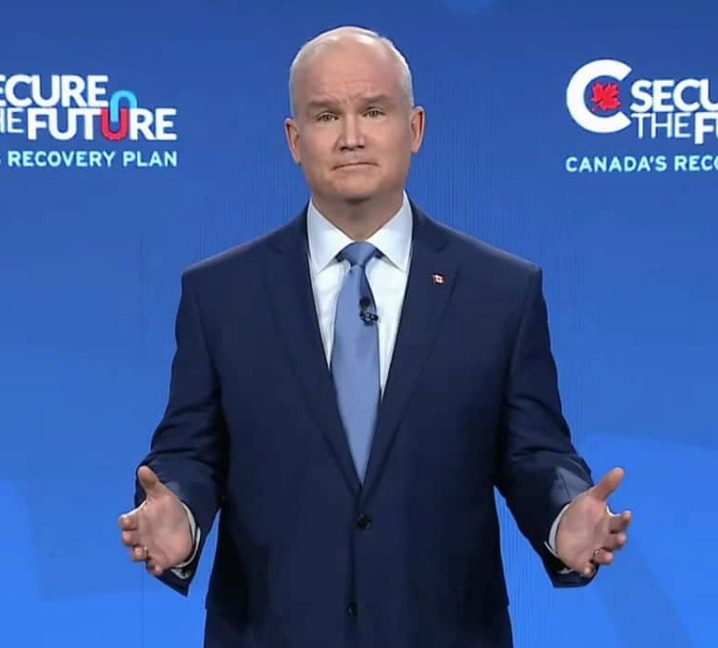The Conservative Party of Canada's policy convention was held virtually between March 18-20. It was a relatively straightforward affair. A few potentially contentious issues, including abortion, were kept off the schedule. Party leader Erin O'Toole's speech emphasized political unity and vision, and told grassroots members that Conservatives had to move forward "with the courage to grow, to be bold and to change."
Alas, there was one item that didn't go quite according to plan. We'll call it the Conservative Climate Change Controversy, or Câ´.
This involved a policy resolution related to Environmental Principles in Section I-53. Three additional paragraphs would have been included:
We recognize that climate change is real. The Conservative Party is willing to act.
We believe that Canadian businesses classified as highly polluting need to take more responsibility in implementing measures that will reduce their GHG emissions and need to be accountable for the results.
We believe in supporting innovation in green technologies. We need to become a world class leader and to use innovation as a lever of economic development.
The resolution was defeated 54%-46%.
When news began to spread, the (mostly) left-leaning masses immediately got triggered. "They don't believe in climate change," some said. "I always knew the Conservatives were climate change deniers," others remarked, along with "The Liberals are easily going to win the next election" and "What a huge rebuke to O'Toole's leadership."
You get the idea.
Is Câ´ really as bad as some have suggested? Is the sky falling, as Chicken Little said in the children's fable? Are the Conservatives going to be associated with climate change denial to the end of time?
The answer is "no." The whole controversy is, to quote William Shakespeare, much ado about nothing.
In fact, Câ´ should really be described as C5, or the Contrived Conservative Climate Change Controversy.
Let's explore this a bit further.
Climate change was addressed in the Conservative Policy Declaration several years ago. If you go to Section I-53, the fifth paragraph reads, "We believe that an effective international emissions reduction regime on climate change must be truly global and must include binding targets for all the world's major emitters, including China and the United States."
That long-standing reference to climate change would have been listed two paragraphs above the proposed resolution stating "climate change is real." If the Conservatives have already addressed climate change in the policy, it means most party members believe it exists. A primary reference doesn't need to be quantified by a meaningless secondary line.
What about Abacus Data's recent survey that revealed 18% of Conservative supporters believe climate change is a "hoax?" Similar to the theory that no two snowflakes (the ice crystals, not the triggered masses) are alike, no two supporters of any political party think the same way on every issue. If 82 percent of Conservative supporters believe climate change is real in some way, shape or form, that's quite good.
Nevertheless, some wonder how the Conservatives will escape being labeled as climate change deniers.
Yes, it's unfortunate this small dust-up occurred. It would have been wiser in hindsight to have kept this contentious resolution off the table. The Trudeau Liberals will obviously attempt to use C5 to their political advantage.
That being said, the defeat of a meaningless line that has no bearing on current party policy on climate change doesn't take away from this reality (pun intended). There's no correlation to climate change denial since most party members don't deny that there is climate change.
It's also highly unlikely that C5 will be a topic of intense debate.
Canadians are mostly unaware of a party's exact policy on political and economic matters on a word-for-word basis. For instance, the Conservative Policy Declaration has a section (J) on Health with a line about Abortion Legislation (Point 70), "A Conservative Government will not support any legislation to regulate abortion." If the party's position on abortion has been clear for years and this one existed during Andrew Scheer's leadership the never-ending questions surrounding this issue should stop.
What if the ramifications of C5 persist, however?
Then it's up to the Conservatives to push back immediately against this narrative. Don't let the Liberals, NDP, Greens and others take control of this situation and brazenly claim they're just a bunch of climate change deniers. Tell the public it's a bald-faced lie, and show why. Emphasize the positive aspects of the Conservatives' environmental record, including tackling climate change. Propose environmental policies that matter to individuals and businesses, and create a plan of action.
Above all, O'Toole must ensure that Canadians always understand he's the one in charge. Some grassroots members didn't like the way the policy resolution was worded, and they had their say during the convention. What the party leader says and does is the only thing that truly matters.
O'Toole is moving in this direction. He told the convention that he would "not allow 338 candidates to defend against the lie from the Liberals that we are a party of climate change deniers." He also went on CBC's Power and Politics on Monday, and said "there were a lot of measures within that resolution that led for it not to be put forward" and "the debate is over. The Conservative Party, in the next election, will have a very serious plan to reduce emissions while also making sure Canadians get back to work."
That will help get rid of Câ´ and C5, and ensure the only "C" that Canadians think about at the ballot box is Conservative.
Photo Credit: Maclean's








